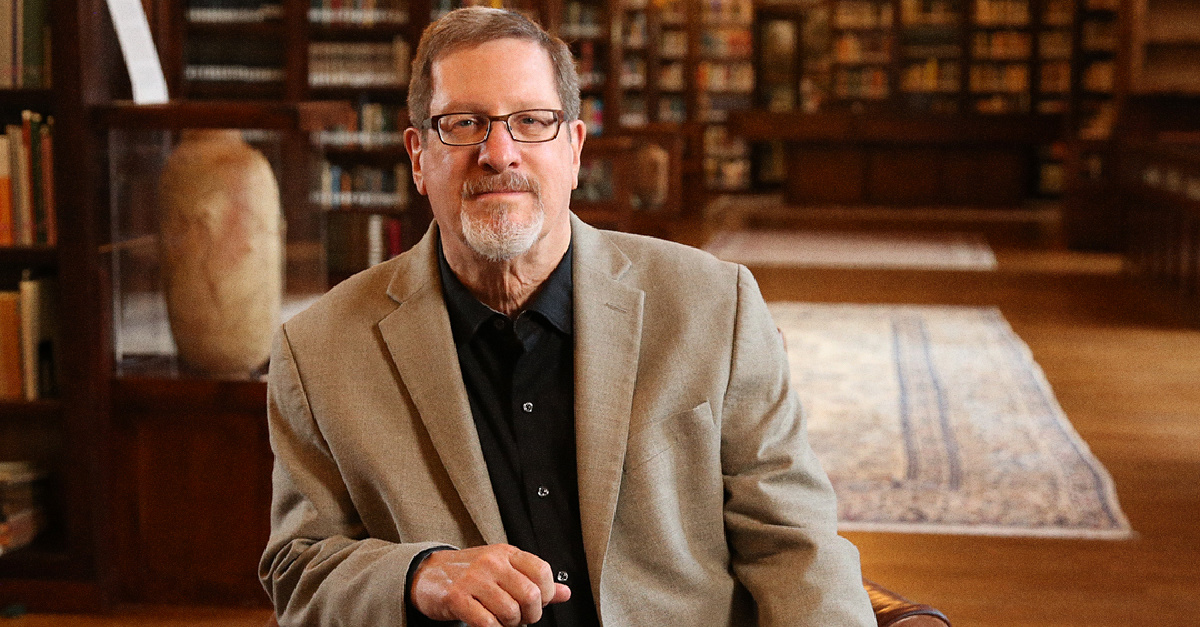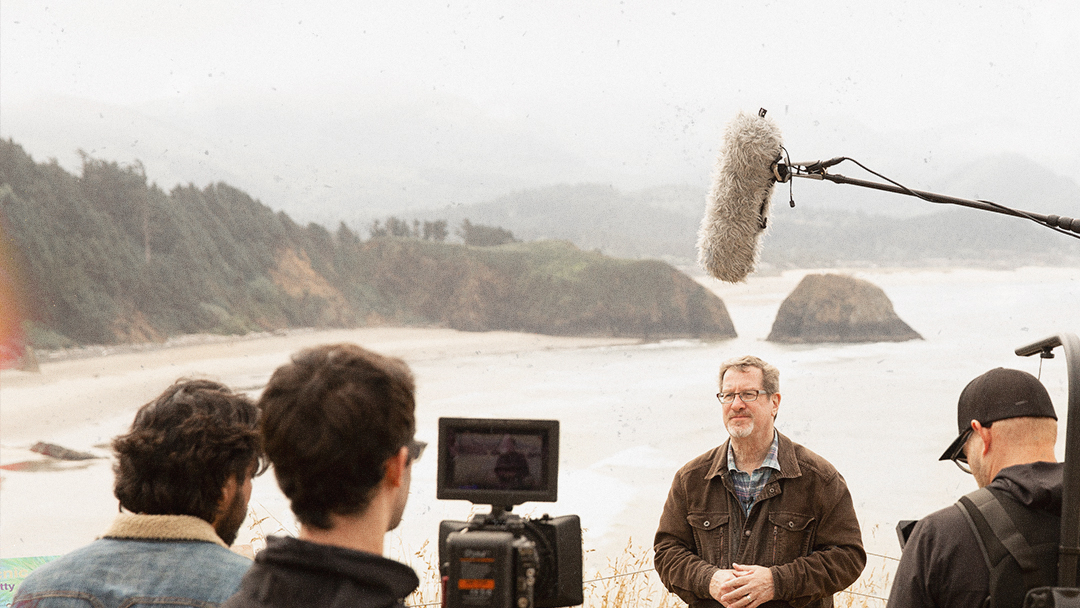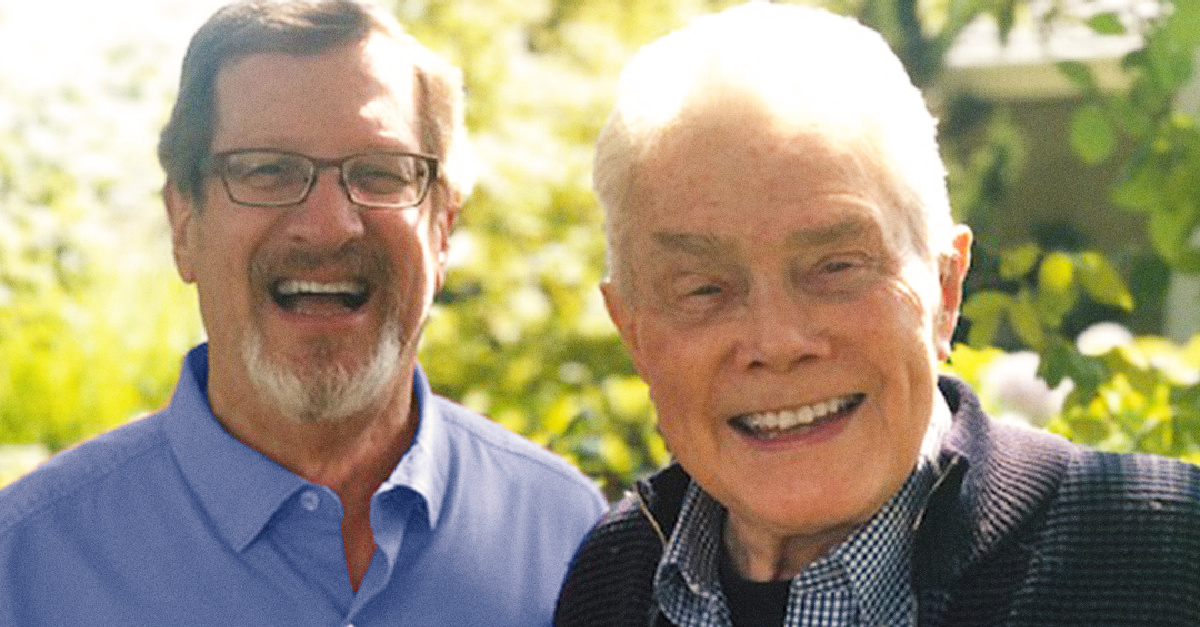Lee Strobel was already a bestselling author and well-known apologist back in 2011 when he faced a medical emergency that nearly killed him.
Strobel had hyponatremia, a condition in which the body's sodium levels drop dangerously low.
He survived the incident, but it forever changed how he viewed death and the afterlife.
Strobel's brush with death led him on a quest to investigate not only what Scripture says about Heaven but what people who had faced death had experienced.
He wrote a 2021 book, The Case for Heaven: A Journalist Investigates Evidence for Life After Death.
And now, a movie by the same name is out.
Called simply The Case for Heaven, the documentary follows Strobel as he travels the world and interviews experts on the subject.
Here are four things you should know about the film:
Photo courtesy: ©Fathom

1. It Confronts an Unavoidable Subject: Death
Strobel contends that the average person spends most of their life trying not to think about death. They avoid the subject, he says, with constant distractions – movies, social media, music and sports, among them.
"We try to suppress it, we ignore it, we try to deny it, we try to distract from it – but the truth is our fear of death … drives all of culture," Strobel said.
In The Case for Heaven, moviegoers are confronted by the reality of death but are told they have nothing to fear if they trust Christ.
"Even among non-believers, there's an attempt to try to be immortal apart from God," Strobel told Crosswalk. "The Bible says in Ecclesiastes that God has planted eternity in our hearts – there's something inside of us that longs for eternity. People who don't believe in God try to achieve some sort of immortality by writing a best-seller or designing a cathedral or painting a masterpiece, or committing a crime. Look at Mark David Chapman – why did he murder John Lennon? He said, 'I wanted to steal a bit of his fame.' He wanted his name to go down in history."
People, he said, are naturally "fearful of death."
"We do things to distract ourselves from thinking about it – anything that we don't have to focus on the fact that we're not going to be around forever," he said.
Photo courtesy: ©Fathom

2. It Affirms Near-Death Experiences
The Case for Heaven includes stories about near-death experiences – experiences that Strobel said can be proven to be true due to the patient providing facts they should not know. (In one instance, a female patient who was clinically dead described what she heard and saw in the room during the moments she supposedly was deceased.)
John Burke, an expert on the subject and the author of Imagine Heaven, is interviewed.
"I was a skeptic about it," Strobel said of near-death experiences. "Even as a Christian, I was skeptical about near-death experiences initially until I did the research."
The film also includes an interview with Howard Storm, a former university professor who said he died and experienced hell. The horrific encounter led him to quit his teaching career and become a pastor. Storm wrote a book, My Descent into Death.
Strobel acknowledges that the subject is controversial in some circles but believes it can be helpful when talking to non-Christians.
"When we have conversations with non-believers, they don't give Scripture the kind of credibility that you and I do," Strobel told Crosswalk. "And when we have external corroboration to the Scriptures, things from the scientific world that corroborate and confirm what the Scriptures describe, this is further evidence that the Scriptures are telling us the truth."
Photo courtesy: ©Fathom

3. It's a Mixture of Theology and Science
Strobel interviews Christian leaders such as Francis Chan, Andrew Palau and John Burke, but he also dives into the science of life and death.
Sharon Dirckx, who holds a Ph.D. in brain imaging from Cambridge University, explains how the sense of smell helps prove there is more to this world than the physical realm. It is impossible, she said, to describe the smell of coffee in purely physical terms.
"We have these experiences all the time that are very difficult to describe purely in terms of physical interactions and physical descriptions," she said.
Dirckx added, "If you want to understand the smell of coffee, you need to smell it."
Life is full of "qualia" – or things that cannot be described in physical terms, she said.
Dirckx, the author of Am I Just My Brain? asserts that "if physical descriptions aren't enough" to describe certain human experiences, then perhaps the "ultimate reason for that lies beyond the physical" realm.
Music is another example of a qualia. Strobel visits a music studio, where he watches a producer discuss the complexity of mixing a track.
"We know that we are more than our brain," Strobel said. "... We have a spirit, we have a soul, we have a consciousness."
Photo courtesy: ©Fathom

4. It's Filled with Hope
In the film's final moments, we hear audio from Strobel's interview with the late evangelist Luis Palau, who was diagnosed in 2018 with stage 4 lung cancer and died in 2021 at age 86. It was the last major interview with Palau before he passed.
In making a film about Heaven, Strobel said he thought it "would be good to talk to someone who's about ready to go."
"He was anxious to go" to Heaven, Strobel said. "... He said, 'I'm ready.'"
Palau's widow, Patricia, pushes back on those who say she "lost" her husband.
"He's not lost. I know where he is," she said.
Strobel told Crosswalk he wants the film to impact Christians and non-Christians alike.
"I hope it leaves non-believers to seek so that they find the truth of faith," he said. "And for believers, I hope it encourages them. I hope it deepens their faith. I hope it emboldens them in terms of reaching out to people who aren't believers and to share the Gospel with them. And if both those things happen, I'll be a happy camper."
Visit TheCaseforHeavenMovie.com
Entertainment rating: 4 out of 5 stars.
Family-friendly rating: 4.5 out of 5 stars.
Photo courtesy: ©Fathom
Michael Foust has covered the intersection of faith and news for 20 years. His stories have appeared in Baptist Press, Christianity Today, The Christian Post, the Leaf-Chronicle, the Toronto Star and the Knoxville News-Sentinel.